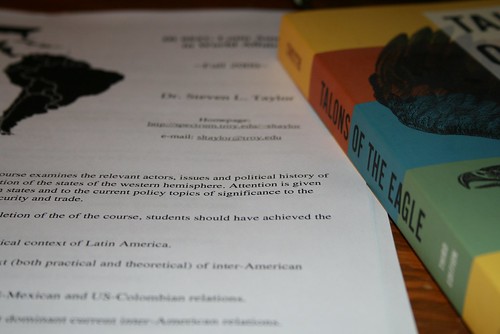
365.179
  |
Information | |
ARCHIVES
April 2026
January 2026 December 2026 November 2026 October 2026 September 2026 August 2026 July 2026 June 2026 May 2026 April 2026 March 2026 February 2026 January 2026 December 2026 November 2026 October 2026 September 2026 August 2026 July 2026 June 2026 May 2026 April 2026 March 2026 February 2026 January 2026 December 2026 November 2026 October 2026 September 2026 August 2026 July 2026 June 2026 May 2026 April 2026 March 2026 February 2026 January 2026 December 2026 November 2026 October 2026 September 2026 August 2026 July 2026 June 2026 May 2026 April 2026 March 2026 February 2026 January 2026 December 2026 November 2026 October 2026 September 2026 August 2026 July 2026 June 2026 May 2026 April 2026 March 2026 February 2026 January 2026 December 2026 November 2026 October 2026 September 2026 August 2026 July 2026 June 2026 May 2026 April 2026 March 2026 February 2026 January 2026 December 2026 November 2026 October 2026 September 2026 August 2026 July 2026 June 2026 May 2026 April 2026 March 2026 February 2026 January 2026 December 2026 November 2026 October 2026 September 2026 August 2026 July 2026 June 2026 May 2026 April 2026 March 2026 February 2026 January 2026 December 2026 November 2026 October 2026 September 2026 August 2026 July 2026 June 2026 May 2026 April 2026 March 2026 February 2026 |
By Steven L. Taylor
By Steven L. Taylor
By Steven L. Taylor
By Steven L. Taylor

365.176. Quite honestly this was a desperation shot taken towards the end of the day to keep the streak alive. Given the events of today (the day I am uploading this), however, it has taken on a timely air. Filed under: photoblogging | Comments Off|
By Steven L. Taylor
With all due respect to Fausta (Coup in Honduras – Correction: This is NOT a coup), yes, it was a coup. A coup is, by definition, an extralegal seizure of power. It doesn’t matter if one likes the person who is removed or not or whether one likes that person’s political allies. Beyond that, it even doesn’t matter if the person removed from power was engaged in illegal activities, as in properly institutionalized democracies, there are things like rule of law and due process that must be followed and if they aren’t, then one loses one’s institutionalized democracy. In short: process matters and I can find nothing in the Honduran Constitution that would allow for the 3am arrest of the president and his subsequent exile. Indeed, if such a provision exists, it would be quite unique in the annals of constitutional design. It really doesn’t matter that the Honduran Supreme Court of Justice and other institutional actors in Honduras have declared the action legal, that doesn’t make it so. Indeed, those who foment coups normally assert the legality of their actions, even when they are blatantly not so. I would also note that a coup is still a coup even if the military doesn’t take power. Filed under: Uncategorized | Comments/Trackbacks (3)|
By Steven L. Taylor
I remain somewhat unclear on what the legal process is in Honduras for properly removing the president. Matthew Shugart notes: In the Shuwaring appendix (p. 452) we said: If one goes back to the original language of 205.15 (before it was voided by Decree 157 of 2026) it stated the following: 15. Declarar si ha lugar o no a formación de causa contra el Presidente, Designados a la Presidencia, Diputados al Congreso Nacional, Magistrados de la Corte Suprema de Justicia, Miembros del Tribunal Nacional de Elecciones Jefe de las Fuerzas Armadas, Secretarios y Subsecretarios de Estado, Jefes de Misiones Diplomáticas, Contralor y Subcontralor, Procurador y Subprocurador de la República y Director y Subdirector de Probidad Administrativa; The provision basically stated that the congress had the power to declare if cause existed to level charges against the president and a host of other office holders. It said nothing, however, about procedure. I cannot find the text of the decree in question. Filed under: Uncategorized | Comments Off|
By Steven L. Taylor
In my previous post I wondered as to why the Vice President (Elvin Santos) did not take over when Zelaya was exiled, and a commenter noted that he had resigned to rule for the presidency. Matthew Shugart corroborated this in a post over at Fruits and Votes. Here’s an english-language reference from an AP story from last week (Honduras heads toward crisis over referendum
So, there you go. Filed under: Uncategorized | Comments/Trackbacks (1)|
By Steven L. Taylor
Interestingly, the Honduran Constitution of 1982 (Honduras: Constitución de 1982) does provide for loss of citizenship for those who “incite, promote or aid in the continuation or re-election of the President” (article 42, translation mine): ARTICULO 42.- La calidad de ciudadano se pierde: Further, Article 239 indicates that anyone who has held the office of chief executive cannot be president or vice president and anyone who proposes reform to that prohibition can be barred from holding public office for ten years: ARTICULO 239.- El ciudadano que haya desempeñado la titularidad del Poder Ejecutivo no podrá ser Presidente o Vicepresidente de la República. My educated guess on that provision is that it is aimed move at banning past military dictators from pursuing the office than it is a stricture contra re-election, per se. Additionally, Article 374 bars any amendments regarding the length of the presidential term (amongst other things: ARTICULO 374.- No podrán reformarse, en ningún caso, el artículo anterior, el presente artículo, los artículos constitucionales que se refieren a la forma de gobierno, al territorio nacional, al período presidencial, a la prohibición para ser nuevamente Presidente de la República, el ciudadano que lo haya desempeñado bajo cualquier título y el referente a quienes no pueden ser Presidentes de la República por el período subsiguiente. As such, it is pretty clear why the Supreme Court of Justice ruled against Zelaya’s plebiscite proposal in the first place. It also means that if the vote had been allowed to happen it would have had no legal standing and that there was an alternative route (several, actually) to deal with the situation. So, while it seems that there is a clear constitutional case against Zelaya’s actions, none of the above justifies arrest and exile as the provisions in question do not give the Supreme Court of Justice the power to summarily rule on these issues. Also, while we are on the topic of constitutional provisions, it is unclear to me at the moment at why the president of Congress was sworn in as president and not the vice president (see Article 242). Update: that question has been answered. Our complete set of 70-649 test questions and PMI-002 study guides you in exact way so you will pass your real 650-296 exam & testking 70-685 with flying colors of cwna dumps. Filed under: photoblogging | Comments/Trackbacks (39)|
By Steven L. Taylor
In today’s Press-Regsiter: Iran’s battle of the insiders: Sunday, June 28, 2026 By STEVEN TAYLOR Special to the Press-Register There is an understandable desire to view the ongoing drama in Iran as one driven primarily by street protests, and to be viewed through the prism of status-quo mullahs vs. democratic reformers. However, such views are not only incorrect; they also distract from our ability to understand what is actually taking place. It is important to realize that in such events, crowds rarely win the day. While we frequently romanticize the ability of the masses to take to the streets against tyranny as a means by which to effect dramatic change, history tells a different tale. If a government can maintain control of its security forces, civilians stand little chance. Even massive popular protests will fail. Filed under: Uncategorized | Comments/Trackbacks (2)|
By Steven L. Taylor
Fausta points (see the 1:50pm update) to this piece in the Hondurdan daily, La Prensa, which notes a press release from the Supreme Court of Justice, which stated that “las Fuerzas Armadas actuaron en base a ley” ["the armed forces acted with a legal basis"], specially a judicial order, in their move against President Zelaya. Now, the problem is that just because a institution of the state declares an act legal does not make it so. There is little doubt in my mind that the Supreme Court of Justice could have issued an order to block Zelaya’s plebiscite (which it had already declared illegal and that the Congress had likewise banned), but it is a strain (to put it mildly) to assume that the Court has the power to unilaterally dismiss the President, let alone remove him from the country. As such, I would disagree with Fausta’s assessment (made at the above link at he 1:40pm update): CNN en español mentioned that Zelaya was arrested by court order. This signals that all the Honduran institutions were behind this move, in which case the president was overthrown, but it would not be a coup d’etat. Perhaps this is a quibbling over terminology, but just because the actions were not initiated solely by the military doesn’t mean it wasn’t a coup. Indeed, coups often involve elected officials and flimsy attempts at legal justification (Fujimori’s 1992 coup in Peru immediately leaps to mind). The key question here is whether there is any constitutional right for the Court to order the military to arrest and exile the president. I think I am on firm ground in assuming that such a power does not exist (although I will confess that I have not actually consulted the Honduran constitution on this point as yet). This was clearly an extra-legal removal of a president. That makes it a coup. The story notes, by the way, that the president of the Congress, Roberto Micheletti, will be sworn in as president sometime today. Filed under: Uncategorized | Comments/Trackbacks (13)|
|
blog advertising is good for you Visitors Since 2/15/03
|
Powered by WordPress